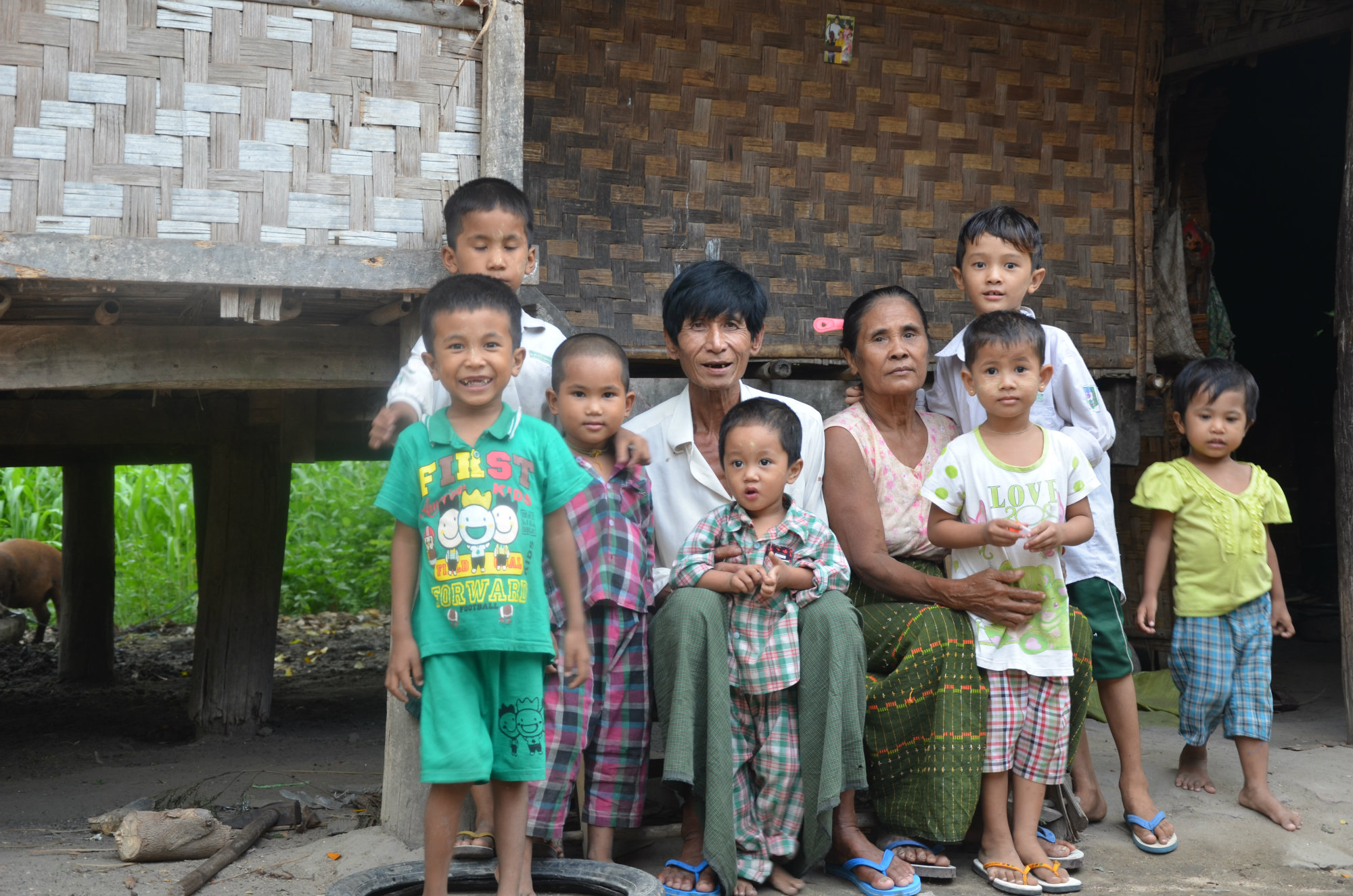Takone, Myanmar – U Tin Myint, 66, lives in Naung Ngar Pin village, Takone township in central Myanmar with his wife, children and grandchildren. All of his eight children dropped out of school to work as casual laborers. Four of his children currently work, each earning on average 2,500 Kyat ($2) per day during the rainy season to support the household of 13.
Neither U Tin Myint nor his wife, Daw Nyunt, have a pension. Myanmar’s social security programs provide pensions for civil servants and health insurance for private sector workers but there is no coverage yet for informal workers like U Tin Myint.
“During the dry season, finding casual work nearby becomes harder for my children and they often migrate for short periods to Shan state to work on sugar cane plantations,” he shares. “Two of my daughters are widows looking after their children. One of my daughters passed away eight months ago due to pneumonia. She did not have health insurance and I did not have the money to send her to a hospital in Nay Pyi Taw for treatment.” To pay for funeral expenses, he was able to get help from a community funeral fund.
U Tin Myint’s ordeals exemplify the need for comprehensive social protection programs. Only 3.2% of Myanmar’s population is covered by the government’s social protection programs and only 0.1% focus on the poorest and most vulnerable.
Traditional support structures such as families and communities are insufficient to help households cope with multiple issues that affect their wellbeing. Community support is usually limited to funeral funds and sporadic donations. Families suffer increased hardship when the main income earner becomes injured or passes away.


